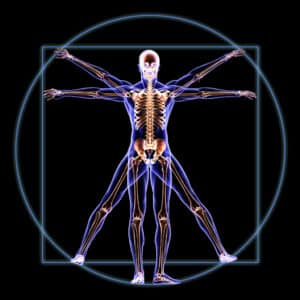Introduction: The Difference Between Biological and Chronological Age
Ever wondered why some people seem to defy the aging process while others appear older than their years? The secret lies in the difference between biological and chronological age. While your chronological age is just a number based on your birth date, your biological age tells the real story of how your body is holding up. Let’s explore why your biological age matters more and how you can discover it through a biological age test to optimize your health.
What is Biological Age?
Definition and Importance
Biological age is a measure of how well your body’s cells and systems are functioning compared to the average population. It’s influenced by your genetics, lifestyle, and environmental factors, making it a more accurate reflection of your health and longevity than the number of candles on your birthday cake.
How It Differs from Chronological Age
Chronological age is simply the number of years you’ve been alive. In contrast, biological age can tell you how “old” your body really is. For example, you might be 40 years old chronologically, but if you’ve taken great care of yourself, your biological age might be closer to 30. On the flip side, poor lifestyle choices can make your biological age older than your actual years.
Understanding the Rate of Aging
Factors Influencing Biological Age
Your biological age is influenced by various factors, including diet, exercise, sleep, stress levels, and exposure to toxins. Even your mental health plays a role. Understanding these factors can help you make changes to slow down the aging process.
How Lifestyle Choices Affect Aging
Healthy lifestyle choices like eating a balanced diet, exercising regularly, getting enough sleep, and managing stress can significantly impact your biological age. Conversely, smoking, excessive alcohol consumption, poor diet, and a sedentary lifestyle can accelerate it.
The Science Behind Biological Age Testing
Types of Biological Age Tests
There are several types of biological age tests, each looking at different aspects of your biology. DNA methylation tests, telomere length tests, and biomarker-based tests are among the most common. These tests provide a snapshot of your biological age based on the state of your cells and systems.
Biomarkers Used in Testing
Biological age tests measure biomarkers such as inflammation levels, metabolic function, and cellular health. These indicators provide valuable insights into how well your body is aging and help pinpoint areas that may need attention.
Accuracy and Reliability of Tests
Biological age tests have become increasingly accurate and reliable thanks to advancements in science. While no test is perfect, they offer a useful tool for assessing your health and planning for the future.
Benefits of Knowing Your Biological Age
Personalized Health Insights
Knowing your biological age gives you a detailed understanding of your health. It can reveal strengths and weaknesses in your body’s systems, allowing you to take targeted action to improve your health.
Early Detection of Health Issues
Biological age testing can uncover potential health issues before they become serious problems. Early detection means you can address these issues proactively, improving your long-term health outcomes.
Tailored Health Optimization Strategies
With insights from your biological age test, you can develop personalized health strategies. Whether it’s tweaking your diet, ramping up your exercise routine, or focusing on stress management, these tailored plans can help you live healthier and longer.
How to Take a Biological Age Test
Preparing for the Test
Getting ready for a biological age test is usually straightforward. Follow the instructions provided by the testing service, which may include fasting or avoiding certain activities before the test.
What to Expect During the Test
The test process varies but typically involves providing a blood, saliva, or urine sample. Some tests might also include physical assessments or questionnaires about your lifestyle and health history.
Interpreting Your Results
Once you get your results, you’ll receive an estimate of your biological age and a detailed report on various health markers. Understanding these results can help you make informed decisions about your health and lifestyle.
Using Your Biological Age to Optimize Health
Developing a Personalized Health Plan
With your biological age results in hand, you can work with healthcare professionals to create a personalized health plan. This plan should address any areas of concern and leverage your strengths to improve your overall health.
Adjusting Lifestyle Habits
Use your test results to make informed lifestyle changes. Focus on areas such as nutrition, physical activity, sleep, and stress management to improve your biological age.
Monitoring Progress and Making Adjustments
Regularly monitor your progress and adjust your health plan as needed. Periodic retesting can help you track improvements and stay motivated.
Case Studies: Success Stories of Biological Age Testing
Real-Life Examples
Hearing about others’ experiences can be incredibly motivating. Many people have successfully used biological age testing to transform their health. These success stories can provide valuable insights and inspiration.
Lessons Learned
These case studies often highlight practical tips and lessons learned, helping you avoid common pitfalls and make the most of your biological age test.


